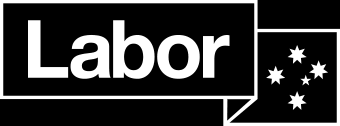A few weeks ago, I attended the opening of a new building called the African Village. Situated in Moorooka, it's the result of the work of the Queensland African Communities Council and their hardworking president, Beny Bol OAM. Beny has a long history of working with young people and is committed to making sure that African Australian youth get every opportunity in life and are not overrepresented in the criminal justice system. Beny arrived in Australia in 2007 and in that time has acquired two master's degrees, has written a book and has been awarded an OAM for his service to youth. Moorooka has always been a familiar home to the African diaspora, especially those early arrivals from South Sudan, Somalia and Ethiopia who arrived during the early and mid-2000s. In Queensland, many new arrivals settled around Moorooka, where the department of immigration arranged housing and support services. Moorooka is a great suburb, and it's where I live.
The opening of the African Village in Moorooka is of great cultural and social significance for many Queenslanders from an African background, especially young people. The aim of this unique space is for the centre to become a community hub for people of all ages, but especially young people. It's a place where they can drop in to relax in a safe place, play a bit of sport or get their homework support after school, sitting on some of the furniture donated by Martin College via my niece, Tricia Kallquist. Thanks to my favourite goddaughter for arranging that.
As Benny explained at the opening of the African Village, for several years now we've observed our children struggling to find their place within their families, communities and schools. So the Queensland African Communities Council designed a youth early intervention strategy—the African villages at Moorooka, Redbank Plains and Geebung are part of that strategy. The centres are modelled around the concept of: 'It takes a village to raise a child.'
At each village, African youth mentors organise locally designed and structured activities to support individual young people, families and schools to make sure that those at risk of becoming disengaged are supported at an early stage. The mentors work closely with students' career experts, parents and teachers to ensure communication is consistent and that expectations are managed and aligned to the students' needs and interests. There are also opportunities for young people to learn traditional dance and to do African language classes. These classes are an important step for young people to reconnect with their cultural heritage, especially in cases where young people are struggling with the concept of cultural identity.
What the Queensland African Communities Council wants to see is a resilient and relatively integrated future generation of the African community in Queensland—and Australia as a whole. The African Village in Moorooka is a great example of making sure all community members are supported to connect, to contribute and to belong.


